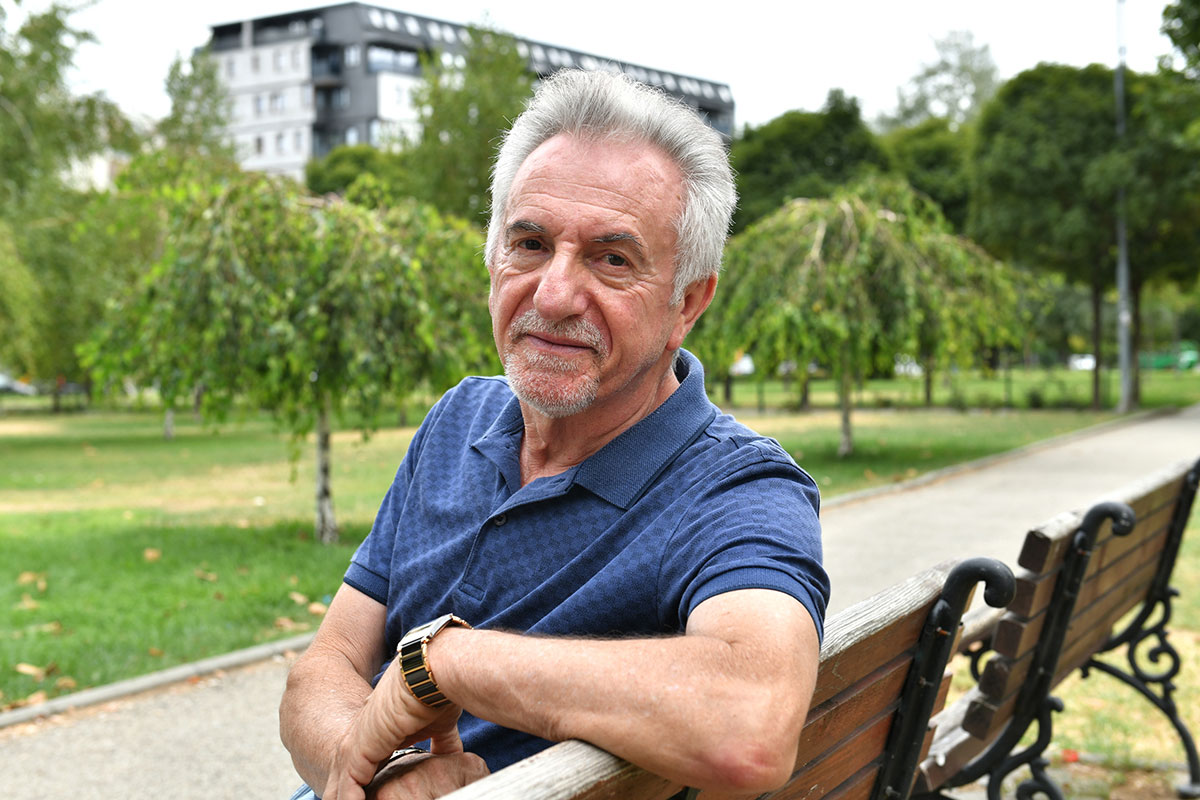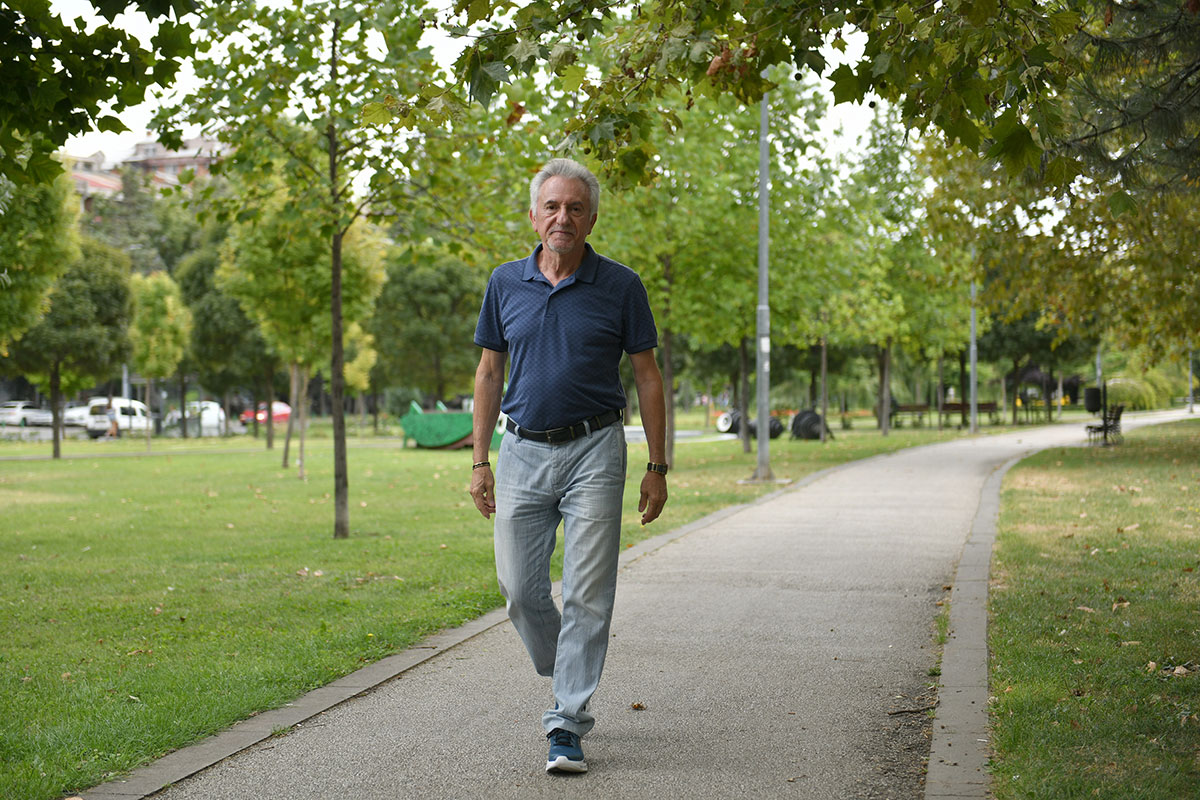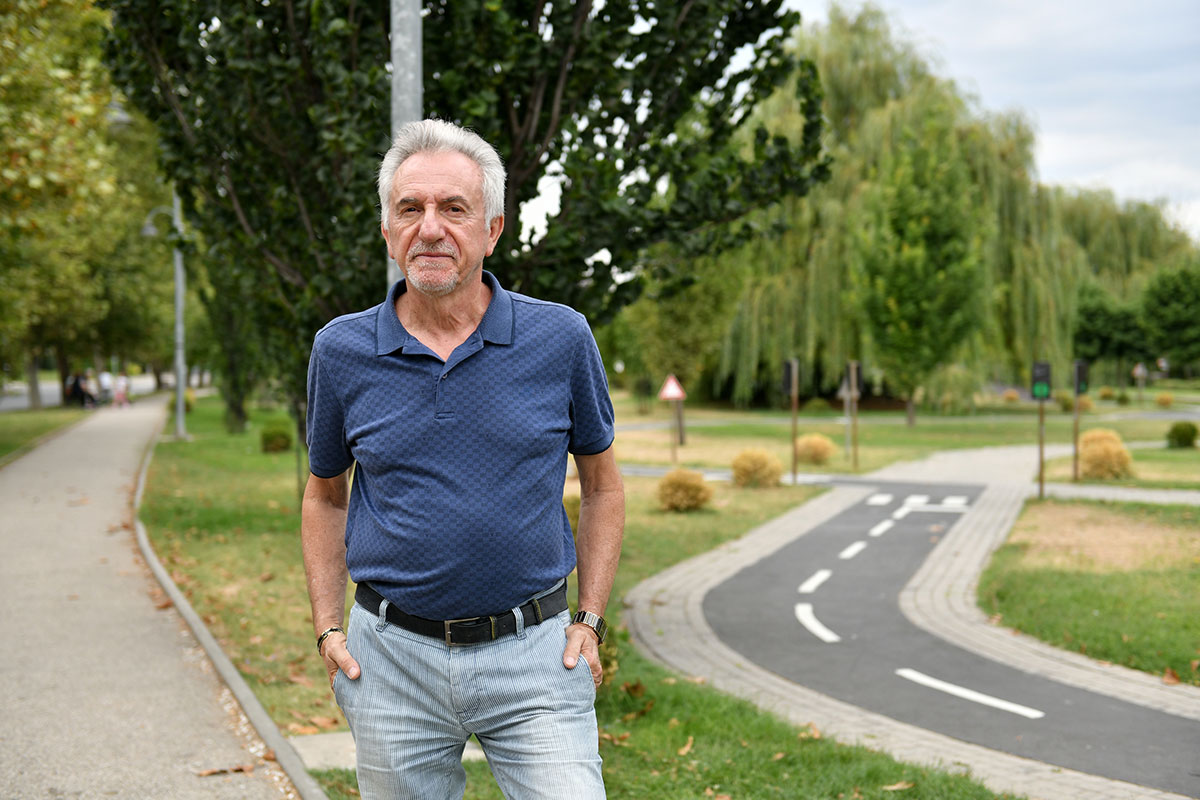Parents must be aware of the responsibility they bear that starts with the birth of their child, says neuropsychiatrist Sasho Stojchev PhD, who believes that the dysfunctionality of the family, which appears to be quite normal and stable, and the alienation between children and parents are the root cause for today’s challenges that children and adolescents face, which include anxiety, depression and violence. According to him, the cases of violent behaviour among children and adolescents are disconcerting and they must not be seen only as a phase in children’s development. The best approach and attempt to understand the child is the right parental, benevolent and kind relationship, showing real interest in what children are facing today.
Anxiety, depression and self-harm are no longer unknown among children and adolescents, and this is confirmed by research. Where lies the cause for such states?
Cases of violent behaviour among children and adolescents are worrying. This complex phenomenon must be carefully looked into.
Even preschoolers exhibit violent behaviour. That should be most worrying to the parents, but also to others who play any role in the upbringing, education and raising of children. Most often it is considered as just a period in the child's development and that it should not be taken seriously. But one must not make a rash, simple conclusion that it is merely a phase in children’s development. It is very important to take note of this behaviour immediately and pay more attention to it and monitor it. In the years after the Republic of Macedonia became independent, there were crises in several fields. There were rapid changes in the social system in all its domains, including education. We had no influence over that. The middle class, which represented 90% of the country's population, was lost.
On the other hand, those changes altered the way of life, and due to parents' busy work schedules that take up more and more time, as material needs increase, there is less and less time for children, to monitor their emotional, social and educational development, to allot time for talking with them, for understanding their daily problems. A rat race began, aimed to secure a livelihood, a better life and a better social status.
Being denied the chance to communicate openly with their parents, children become withdrawn, spend more and more time online, escaping reality. They socialize less and less with their peers, creating a virtual world, in which violent video games serve as mental anaesthesia, and they are alienated from parents, peers and the community at large, and that's how they function. Control, as the first preventive measure, is absent.
More often, challenges among peers are resolved with violence and aggression, in and out of school. After the tragedy in our neighbouring country, there was an avalanche of cases where peers copied this "behaviour". Western countries are familiar with the "copy-cat" model. How do you explain this phenomenon?
I believe that the biggest problem is the dysfunctionality of the family, which appears completely normal and stable. The tragedy from our neighbourhood hit us "out of the blue" and all of us, as parents, educators, teachers, psychologists, social workers and doctors, were taken aback, believing that everything was fine.
And now, all of a sudden, we are looking for our mistakes and the mistakes of the system. We are starting to analyse where we have failed and where we are still failing. We do not delve deeper into the psychology of children and their development, mainly due to a shortage of time, but also because we do not know how to raise and educate our children. Sometimes, too much help from our side is detrimental to children. On the other hand, the lack of emotional warmth in the home alienates our children from us and they seek "refuge" in their peers or on the Internet and its practically uncensored content for their age, in video games that are full of violence. While, in the past, any type of aggression, disrespect or deviant behaviour was condemned by everyone, parents and children alike, parents today are not even aware that their children engage in this type of interaction. Violence is glorified as a normal pattern of behaviour and functioning. We are caught off-balance, not sure what to do and how to treat our loved ones.

You refer to family and parenting. What are families like in today’s world? What values do they have?
The family today is under constant influence of social changes that are happening much faster in recent decades than before. The eradication of the middle class led to dividing into two diametrically opposite layers. The constant race for well-being forced both parents to work hard to meet the material needs, especially of the children. They have less and less time for them and for meaningful connection, where they will, lovingly and through conversation, find out their problems and find a way to help them and guide them in life. This leads us to the question, what is right? Should they teach them order, discipline, positive emotions, friendship, support, freedom, respect for others or the complete opposite. In today's society, according to the pattern of reality, it turns out that the opposite education yields better outcomes. And in times of maximum alienation, single-parent families make more and more sense. The parent devotes him/herself to the child, sometimes even more than two parents, and provides constant care, with complete focus on the child.
What do you detect, what principle of education is favoured in families today?
At the beginning of the marriage, not every family is ready to raise children, but over time, everyone manages in a more or less successful way. There is no written rule on how to raise children.
The family starts from the learned principles in life, how we were brought up, educated and guided in life by our parents, but since there are two parents, the way of upbringing by the stronger, more authoritative parent usually prevails.
The principle of prohibitions, blackmails, severe punishments, which may have been acceptable before, does not give good results today and can be an instigator, a stimulator of deviant behaviour.
The approach to children should be authoritative, with love and understanding, not with the use of physical force or with psychological exhaustion, blackmail and extortion. Also, children are not accessories, they are persons. Therefore, in my opinion, more time should be spent with them, in order to acquire the conditions for daily, open, honest, emotional communication with them. We need to see what lies behind their problems, have a positive attitude, praise them for their successes, support them during their failures, create space and freedom for the child to communicate with the parents in any place and at any time. The child should feel sincere and true love and care, support and security from the parents.
There is a public debate that excessive exposure to crime news contributes to and encourages deviant behaviour among young people...
I personally did not expect that so many young people, children, teenagers would support the violent event that happened. Despite my experience and practice, I was obviously wrong. After this reality check, it is clearly evident that children communicate on the streets by shouting, humiliating, mocking, without empathy, and there is no chatter and laughter. And we are not far from the disrespect, the abuse of pets and everything else to which we still turn a blind eye. Our little or no interest in influencing these phenomena, our preoccupation with ourselves, with politics and with survival, has created space and empowered children and adolescents to easily adopt patterns of behaviour dominated by a lack of emotions, aggression, impulsiveness and irrationality. Thet don’t require a lot of effort to spread quickly.
The vacuum created by the lack of parents’ involvement in their children’s lives, claiming they provide their children with everything they need and everything they want, was filled by the Internet and social media, which are more accessible, familiar, offering all kinds of content and exerting their influence on these children who are not yet psychologically, sociologically and emotionally mature.

In summary, the uncertainty, the rat race, working several jobs, the eroded value system and the long-standing social crisis have caused many tribulations for the families. Are parents “to blame” for this?
It’s very difficult to pinpoint the culprit. Suddenly everyone is to blame, but yes, the parents are first in line. Although, I think that the fault lies in all of us, in our social system for which we were not and still are not prepared. Most of our essential values have been lost. Sooner or later, all of us joined a race for education, position, prestige, money and every material wealth. In order to achieve all that, in the last three decades, unfortunately, we did not notice that we had to sacrifice a lot. We thought we would live better, richer, closer to western values, but without realizing it, we brought in all the western decadence which is costing us dearly and will cost us even more. We have less and less time for our children. But the important thing is that we are present on social media, we are well dressed, we own a nice car, we keep like-minded company, preferably on the same level in society, and seemingly we have it all. Prestige has destroyed our emotions, empathy, charity, solidarity, true love and altruism.
Today's youth is not familiar with our heyday. They are creating their own lifestyles and habits through their peers, social media and pop culture, and parents obviously cannot keep tabs on them – first and foremost, they cannot keep up with the technology. How can this gap be closed?
I believe that not only that we can’t, but we also do not have the right to change the lifestyle of the young generation. Each generation brings novelty, defiance, stubbornness, specificity and something different from previous generations. We, being older, largely lag behind the younger generation in technological development. Their brains have a different pattern of behaviour, approach to news, which we do not accept and is often strange to us. But today practically neither they nor we can imagine our life without the internet and mobile phones. And everyone has access to social media. Anyone who is in a way isolated from society seeks "refuge" in them, because they have become a "safe" community to which we can belong. Often, certain contents are copied unconsciously from social media that cannot be fully processed by the brains of young people and children. Some things, no matter how decadent they may be for us, are accepted immediately, without much intellectual processing, without asking for advice from a parent or relative, and unfortunately, they are often applied and copied in their entirety.
Parents are obligated to control them, openly, not by "spying" and to have insight into the contents that their children see, often copy and implement in their lives. The approach of the parents towards their child depends largely on the structure of the child's personality, but the open and honest approach, that includes humour and showing interest in what their child sees and hears is always the best. The vacuum of parental control is abused by people who "stalk" children on the Internet and unfortunately, their numbers are growing daily.

To avoid the consequences, how do we go about prevention? Where to seek help for ourselves as parents facing such challenges and how can we help children? Is there a chance for correction?
I believe that in most cases it is not too late to help your child, who is not even aware of the path it is taking and what the possible consequences are. Parents must be aware of their great responsibility, which they have from the birth of their children. It is not at all easy to monitor the development of a child, especially when you have other challenges around you. In any case, punishing, reprimanding, insulting, labelling the child has the opposite effect. A barrier between the child and the parent is put up, emotional transfer is lost, empathy is lost, love fades away.
The best approach and attempt to understand the child is having the right parental, benevolent and kind relationship showing real interest in what children are facing today. Today's children receive much more information on a daily basis than we used to receive probably in a month. Their brains cannot adequately process, select and direct this flood of information. That is why parents are the mandatory support.
Do we need psychological literacy today?
In any case, we need it, all generations, both the children and their parents and their grandparents. The development of society is too fast, the information we receive daily occupies our intellectual and emotional capacity.
The taboo that, unfortunately, still prevails in our fragile society, that seeking help from a psychologist or psychiatrist is shameful, unnecessary and insulting, must be broken.
More and more often we are faced with children who are specific in their own way, a specific personality structure, with dominant introversion, alienation, and even schizoid personality disorder. Their number is constantly growing, and one of the reasons is the greater alienation from parents and from other children. In the past, children socialized out on the street, it was difficult to get them home, and now it is difficult to convince them to go out, play with their friends, run, ride a bicycle, etc. peer support is absent.
Modern times bring us many unpredictable and unexpected challenges, and that is precisely why, from time to time, we all need the advice of an expert.

